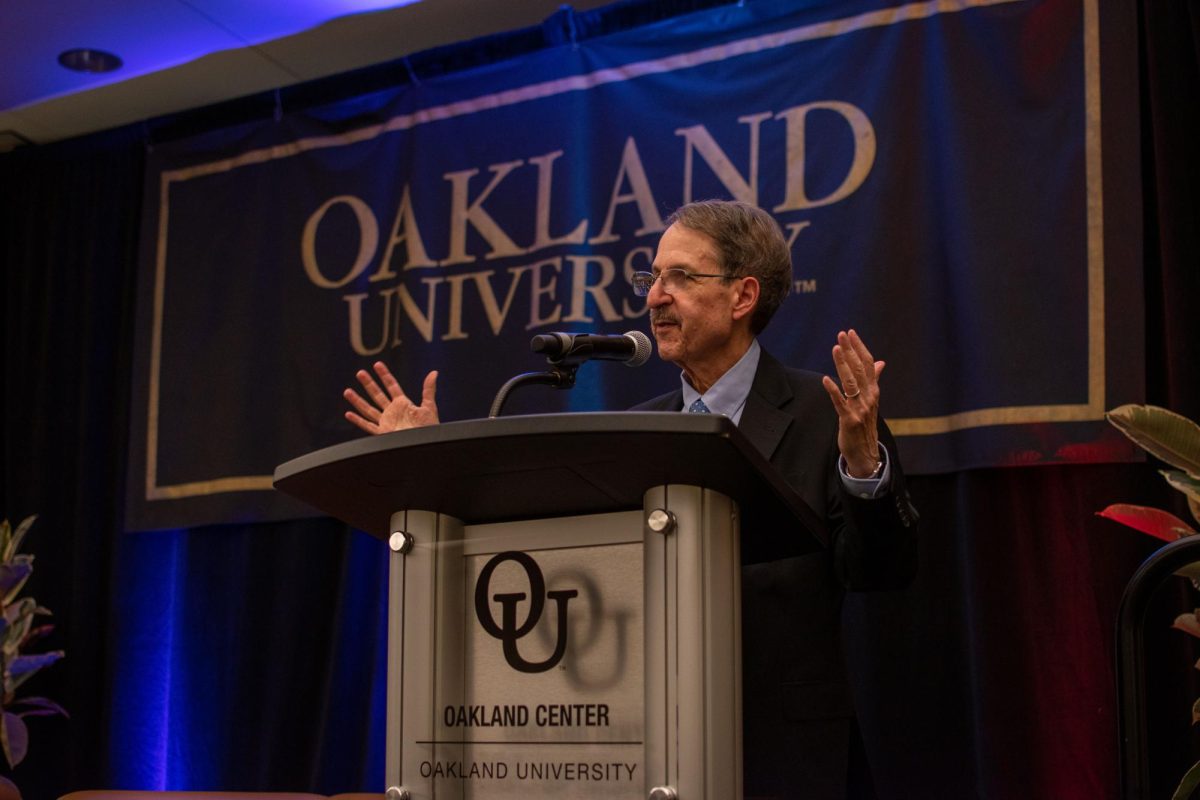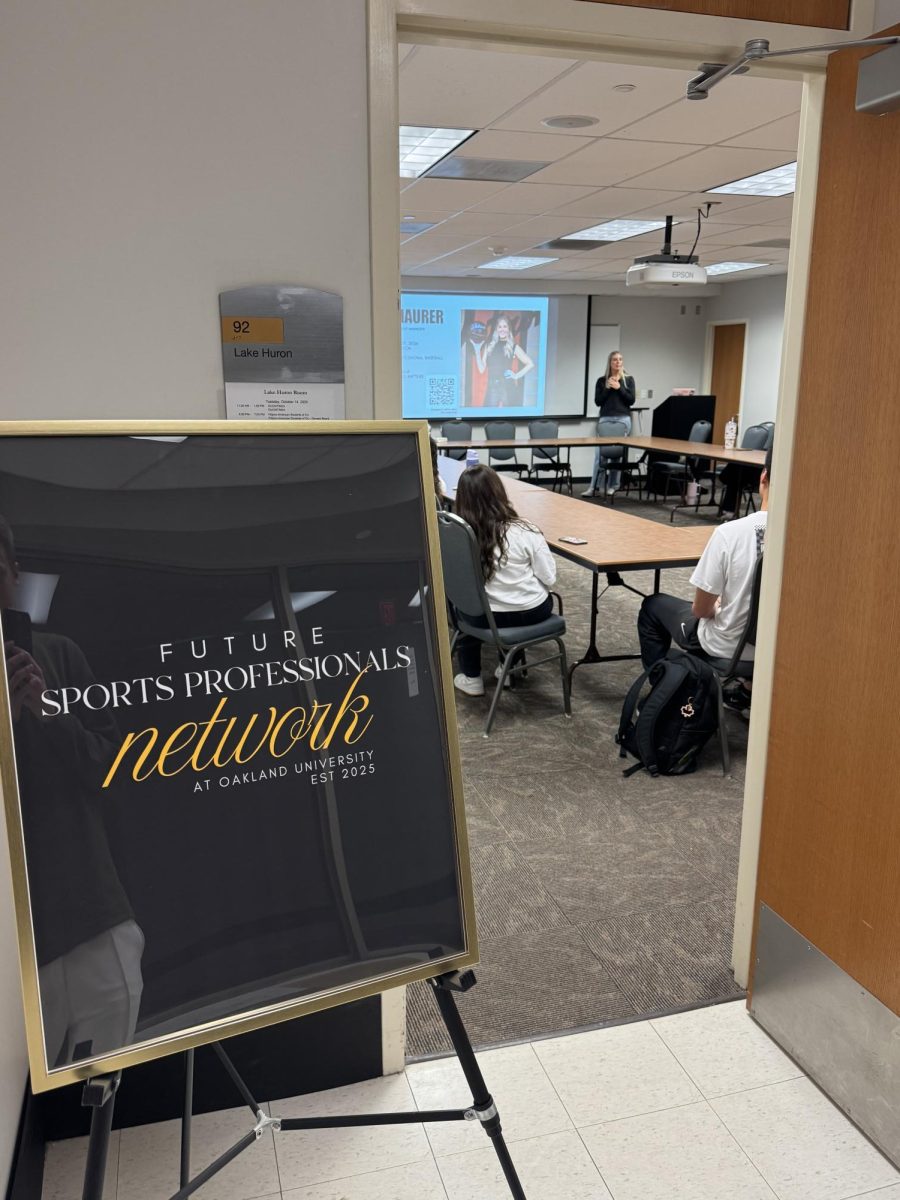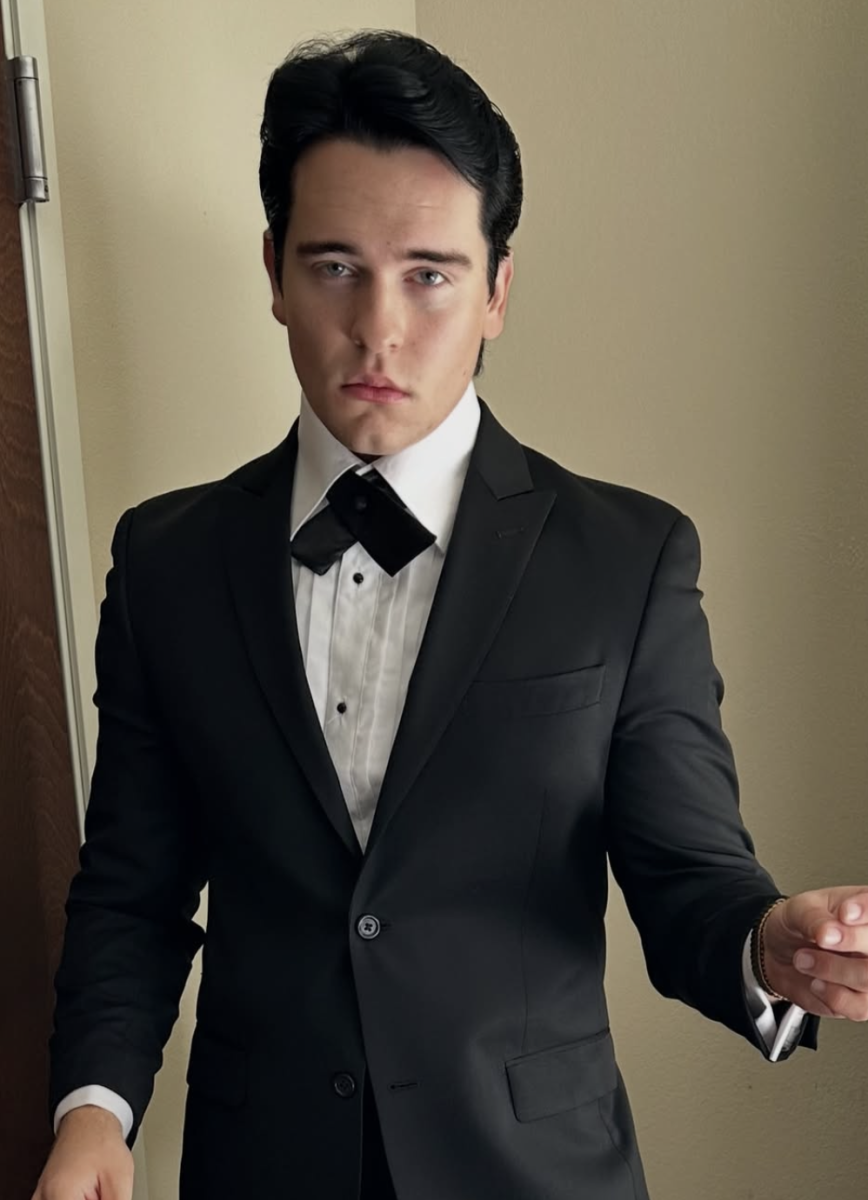On Oct. 25, Oakland University’s Cis Maisel Center for Judaic Studies and Community Engagement and the Zekelman Holocaust Center welcomed Howard Reich, the director of “Prisoner of Her Past” to campus for a film screening and a Q&A session.
Before he ventured into filmmaking, Reich was a musician by trade. Reich holds degrees from Northwestern University in piano performance, music theory and history. Reich’s love for music led him to a career in journalism, covering music and the arts for the Chicago Tribune from 1978 to 2021.
As Reich searched for story topics week by week, he eventually found his most compelling story in the woman who had raised him, his mother.
Sonia Reich, a petite Jewish woman with delicate features, held a haunting story behind her poised presentation. Ms. Reich spent her childhood running from Nazis in her Polish homeland. The Holocaust ripped away Sonia’s childhood, leaving her with the deep, lingering wounds of trauma.
While Reich knew his mother had escaped the Holocaust, he did not realize the extent of her trauma until Sonia’s paranoia resurfaced, leaving her fearful of her surroundings. Reich grew concerned about his mother’s condition when Sonia fled her home one night in 2001, telling police she was worried someone was going to kill her.
Through the heartbreak of seeing his mother’s condition worsen, Reich set out to find answers for Sonia’s persistent paranoia. “Prisoner of Her Past” details Reich’s journeys across the United States and Europe to learn more about his mother’s past.
“This moving documentary gives us an insight into the life of Sonia Reich and her experiences during the Holocaust,” Dr. Michael Pytlik, director of the Cis Maisel Center, said. “The long-lasting impact of those experiences is shown to us through this incredible telling of her story.”
It took Reich a year to finally find a name for the condition his mother was experiencing. A doctor informed Reich that his mother suffered from late-onset Post Traumatic Stress Disorder (PTSD).
“Getting that diagnosis was the first step in finding out what happened to my mother,” Reich said.
After the screening of “Prisoner of Her Past,” the audience was allowed to ask Reich questions about research and experiences while making the documentary.
Reich expressed the documentary was difficult to make; however, his research was beneficial to understanding the behaviors of his mother and other Holocaust survivors.
“Prisoner of Her Past” exposed the increased need for mental health resources and treatment for Holocaust survivors. Furthermore, the film increased awareness of late-onset PTSD.
“My mother was in the present, but she was also haunted by the past,” Reich said. “I have learned there was not much to do with my mother but to be present with her. I made this documentary to tell my mother’s story to others to help them understand their relatives who may be going through a similar situation.”
For those waning to learn more about Reich’s research on the Holocaust or purchasing his book, “Prisoner of Her Past,” please visit his webpage at howardreich.com.





